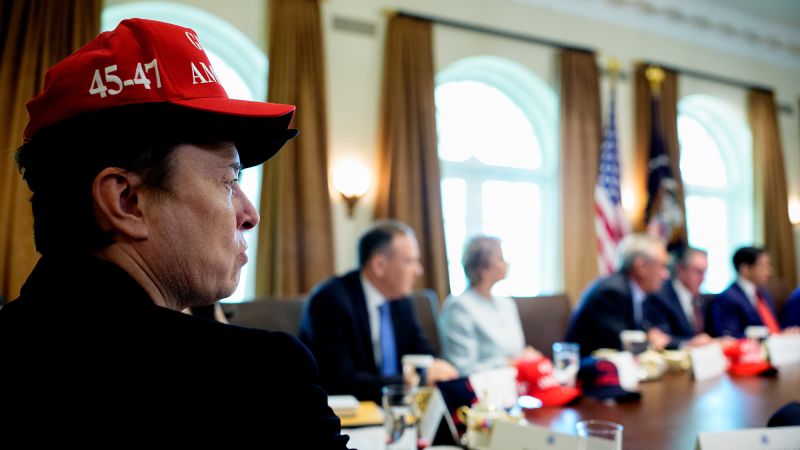On a recent Wednesday, the Trump administration formally sought the intervention of the Supreme Court in a significant legal dispute concerning the accountability of the Department of Government Efficiency (DOGE). This case hinges on whether DOGE, an entity closely linked to the White House, is obligated to disclose public documents akin to standard government agencies or if it enjoys an exemption from such transparency mandates due to its unique position within the executive branch. This legal maneuver highlights a broader struggle over government transparency and the forces shaping governmental accountability under the Trump administration.
The ramifications of this dispute extend deep into the mechanisms of governance, raising pivotal questions regarding the authority and operational transparency of a department known for its rapid budget cuts and aggressive streamlining of federal operations. DOGE, since its inception, has faced criticism for its swift actions that have included significant job reductions across federal agencies. This dynamic has not only prompted concerns about the department’s activities but has also spurred numerous lawsuits targeting the overall administration’s policies and practices, emboldening watchdog organizations and advocacy groups advocating for accountability.
The appeal submitted to the Supreme Court is part of a broader pattern of legal challenges facing Trump during his second term. The administration is contesting a previous ruling by a lower court that would enable a non-profit organization, often critical of governmental practices, to conduct depositions of DOGE personnel. The aim is to uncover more about the agency’s operational framework and its compliance with the Freedom of Information Act (FOIA), which mandates transparency in government dealings. This case has emerged as one of the multiple issues besieging the Supreme Court related to President Trump’s governance.
In the arguments presented, US Solicitor General D. John Sauer categorized DOGE as a “presidential advisory body” whose primary role is to offer insights and recommendations to President Trump. This characterization is pivotal to the administration’s stance, suggesting that the advisory nature of DOGE exempts it from the transparency obligations outlined in FOIA. Sauer argued that undermining this exemption would not only compromise the discussions and recommendations made by presidential advisors but would constitute a flagrant violation of the principle of separation of powers that underpins the American political system.
Sauer emphasized further that the demand for depositions from DOGE’s leadership poses a significant distraction from its core mission — tackling inefficiencies, fraud, and waste within the federal government. This assertion invites scrutiny into whether such internal operations should remain confidential when weighed against the public’s right to know about governmental actions.
Earlier in the year, a federal judge had indicated the likelihood that DOGE falls under FOIA’s purview, thereby reinforcing the public’s right to access government documents. This ruling was a major point of contention, as it could potentially open the floodgates for public scrutiny of government operations and decisions made by officials within DOGE.
Elon Musk, who has famously committed significant time to DOGE while concurrently managing his numerous corporate enterprises, recently indicated that he would step back from his full-time government role to devote more focus to his businesses. His involvement in DOGE has kept the entity in the media spotlight and raised questions regarding the intertwining of private enterprise and public governance.
Judge Casey Cooper, overseeing the case, is currently reevaluating the circumstances surrounding DOGE’s obligations under FOIA, having previously endorsed discovery mechanisms sought by critics. The watchdog group, Citizens for Responsibility and Ethics in Washington, is among those spearheading efforts to hold DOGE accountable, even securing permission to depose the agency’s acting administrator, Amy Gleason. A federal appellate court decision in Washington, DC, has recently upheld Judge Cooper’s prosecution ruling, signaling ongoing legal uncertainty in this high-stakes confrontation.
This episode represents just one facet of a broader narrative unfolding in the Supreme Court regarding DOGE; the justices are simultaneously confronting another substantial issue concerning the entity’s access to Social Security Administration records on millions of American citizens. The intertwined nature of these cases underlines the significant implications for administrative transparency and the delicate balance of power between branches of government, especially during a presidency characterized by controversy and scrutiny.



